Search
Did you mean: Agora?
Search Results

Image
Allied D-Day Landings of WWII, June 1944
The Allied D-Day landings (D-Day is a military term used to designate the day on which a combat operation is scheduled to begin), which took place on June 6, 1944, marked the largest seaborne invasion in history and a pivotal moment in the...
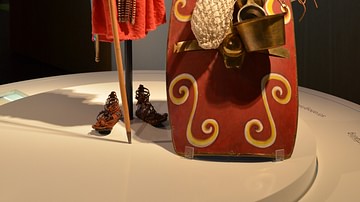
Article
Roman Armor & Weapons
From the days of the hoplites through the creation of the legionary until the fall of the Roman Empire in the west, the Roman army remained a feared opponent, and the Roman legionary's weapons and armor, albeit with minor modifications, remained...

Article
Medieval Knights: 12 of the Best
The knights of medieval Europe were meant to be the finest fighting men of their age, even more important, they were expected to be pure in thought and deed, as exemplified in the chivalrous code which they (usually) followed. Here are the...
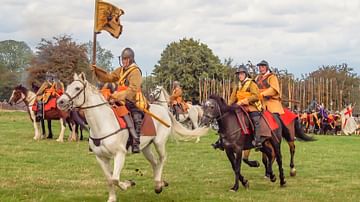
Article
Cavalry in the English Civil Wars
Cavalry regiments were an essential component of both Royalist and Parliamentarian field armies during the English Civil Wars (1642-1651). Armed with a sword, carbine, and a brace of pistols, cavalry riders evolved to become fast, lightly-armoured...
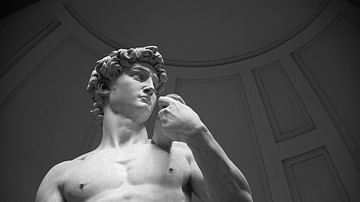
Definition
King David
According to biblical tradition (and some say myth), David (c. 1035-970 BCE) was the second king in the ancient United Kingdom of Israel who helped establish the eternal throne of God. A former shepherd, David was renowned for his passion...
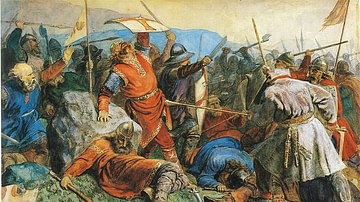
Definition
Viking Warfare
Viking warfare, along with its key component of raiding, is inextricably connected with the expansion of Scandinavian influence along the North Atlantic and into the Mediterranean in the Viking Age (c. 790-1100 CE), where the Vikings' heavy...
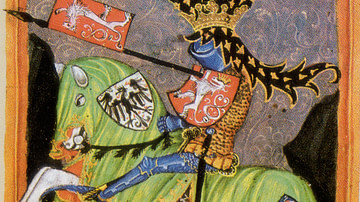
Definition
Medieval Jousting
Jousts were, from the 13th to 16th century CE, a popular part of the European medieval tournament where knights showed off their martial skills by riding against one another with wooden lances in a designated area known as the lists. The...

Definition
Blackbeard
Blackbeard (d. 1718), otherwise known as Edward Teach (probably an assumed name), was an infamous English pirate who operated in the Caribbean and Atlantic during a surprisingly short career lasting just 15 months. With his long black beard...
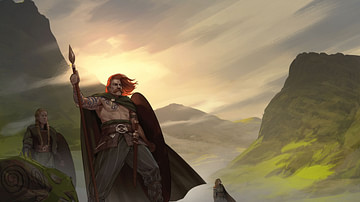
Definition
Celtic Warrior
The warriors of Celtic Europe were amongst the most distinctive of any fighters in the ancient world. With their great height, long hair and moustaches, frequent nakedness, painted and tattooed bodies, and fondness for collecting enemy heads...

Definition
D-Day
D-Day was the first day of Operation Overlord, the Allied attack on German-occupied Western Europe, which began on the beaches of Normandy, France, on 6 June 1944. Primarily US, British, and Canadian troops, with naval and air support, attacked...